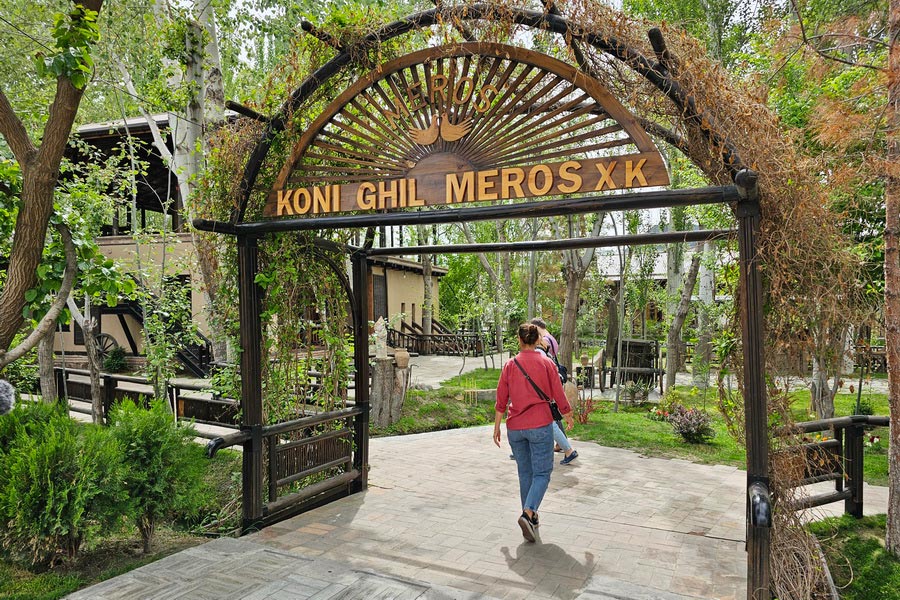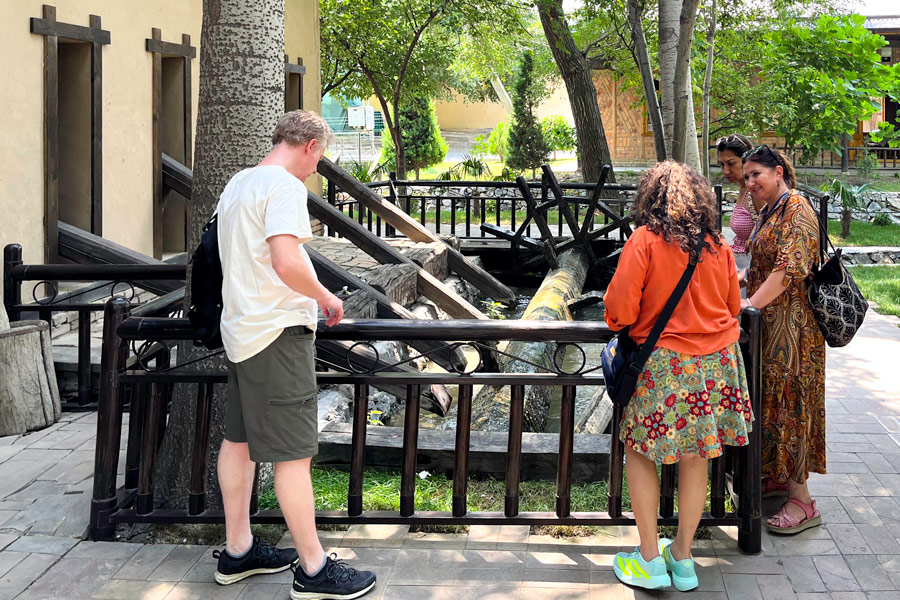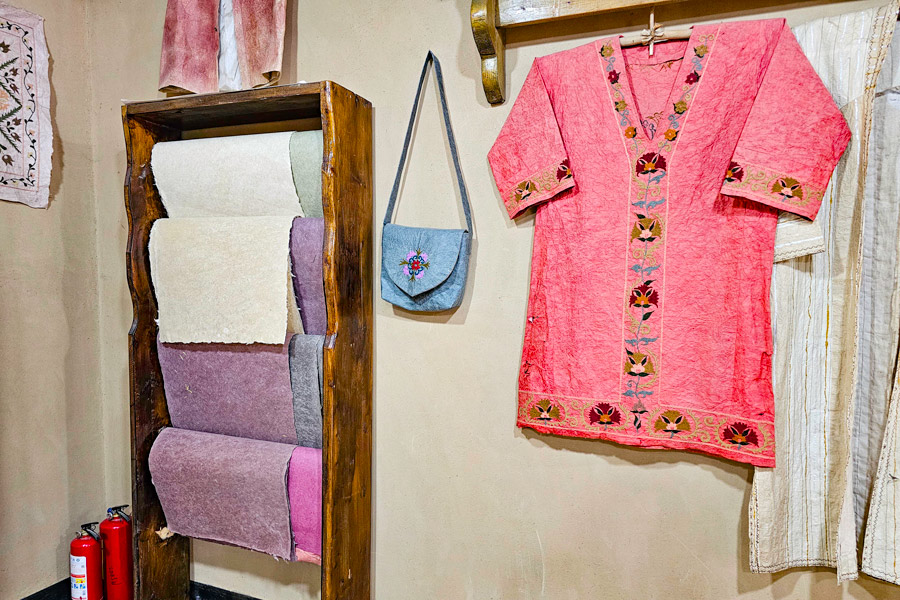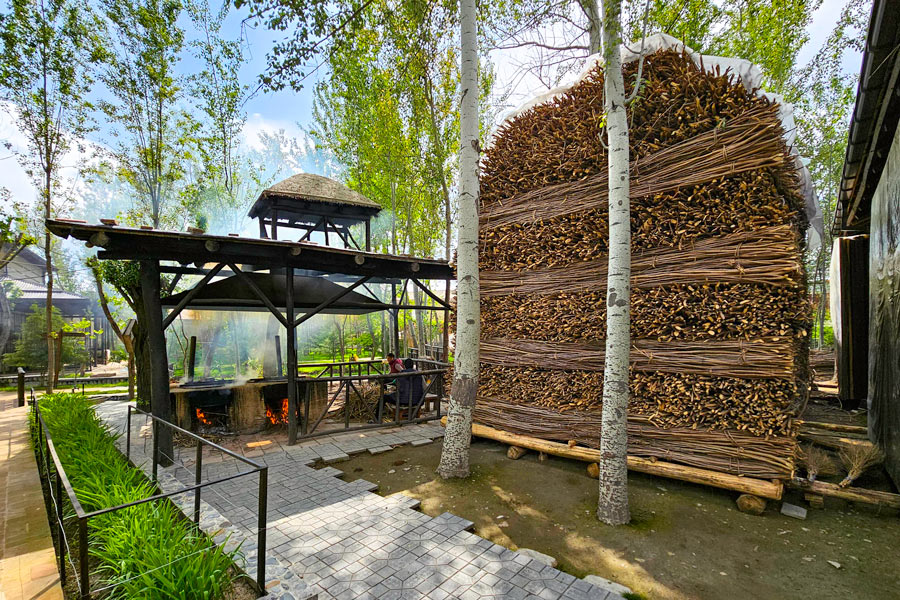
Established by the Mukhtarov brothers, the Konigil Meros Paper Factory resides in the quaint village of Konigil, a stone's throw away from Samarkand. Thanks to the brothers' dedication, they've breathed life back into the age-old tradition of paper production, using the ancestral technology of Samarkand, all of which is skillfully crafted by hand. As a visitor to the factory, you can witness the entire paper production process unfold before your very eyes. The factory provides affordable tours, with a nominal entrance fee of 10,000 soums (as of July 2023). For a mere 25,000 soums, visitors can partake in a hands-on masterclass on creating Samarkand paper, taking home their unique handmade piece.
The visiting of the Konigil Meros Paper Factory, listed among the top things to do in Samarkand, offers a unique glimpse into a living museum where craftsmanship, tradition, and warm hospitality are brought to life.
The Mukhtarov brothers conceived the idea of the factory back in 1996, inspired by UNESCO's initiatives to promote craftsmanship and tourism. They employed 150 individuals across various crafts, including sculpture, jewelry, ceramics, and more. The spark to restore the lost 200-year-old natural paper production technique came along the way. After five years of diligent research, they discovered that the paper was originally crafted from mulberry bark and subsequently began constructing a facility to replicate the full technological cycle. The property was landscaped, a mill built, and spaces were designated for the preparation of raw materials and drying of the finished paper. Today, the Samarkand paper production employs 20 dedicated individuals.

The factory is located in a picturesque setting, nestled amongst shady trees and bordered by the river Siab. It boasts a small welcoming teahouse at the entrance where tourists can sample delicious Samarkand pilaf and fresh fruits. The "charkhpalak" – a water wheel adorned with ancient vessels from which water flows – adds to the factory's charming ambiance.
The production process of Samarkand paper, as followed at the Konigil Meros Paper Factory, is a fascinating blend of tradition and craftsmanship. It begins with the bark of the mulberry tree, which is cleaned and then boiled in a large vat for an extended period. The bark is then pounded into large stacks until it turns into a uniform, dough-like substance. This dough is transferred into a tub filled with water, stirred, and then filtered through a specific sieve. The mass is then compressed onto flaxen sheets, removed, and dried vertically for a day. The dried paper is durable, but to smoothen any roughness, craftsmen polish it on a marble table using either a piece of marble or bone horn, rendering the Samarkand paper smooth.

An interesting characteristic of Samarkand paper is its unique yellow tint. The paper is not chemically bleached, contributing to its considerably longer lifespan compared to ordinary white paper. While high-quality white paper can last around 40-50 years, Samarkand paper can withstand up to 300-400 years. The Konigil Meros Paper Factory produces more than just paper - you can find postcards, notebooks, masks, and even dresses, dolls, and handbags made from this enduring material. These items can be purchased at the factory's onsite store. Today, Samarkand paper, especially those from the Meros factory in Konigil, is used widely for the restoration of ancient manuscripts, both within Uzbekistan and worldwide. Moreover, it enables Uzbek artists to recreate ancient miniatures with authenticity. Gradually, Samarkand paper is reclaiming its past glory both nationally and internationally.

In addition to paper production, the Konigil Meros Factory also specializes in other crafts. The name "Konigil" translates to "clay mine," suggesting the local tradition of pottery. The surrounding area is also known for its rice cultivation and linseed oil production, which is used to prepare their distinctive pilaf. The factory even hosts masterclasses for preparing this special pilaf using linseed oil. A visit to the Konigil Meros Paper Factory offers an enriching immersion into Samarkand's ancient culture and crafts.

